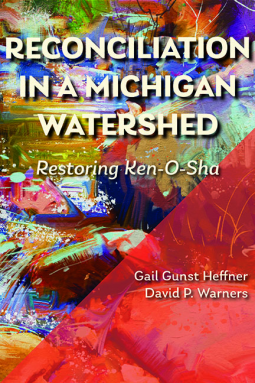Please wait... This may take a moment.
Reconciliation in a Michigan Watershed
Restoring Ken-O-Sha
by Gail Gunst Heffner; David P. Warners
This title was previously available on NetGalley and is now archived.
Pub Date
May 01 2024
| Archive Date
Apr 30 2024
Talking about this book? Use #ReconciliationinaMichiganWatershed #NetGalley. More hashtag tips!
Description
Like many American urban waterways, Ken-O-Sha has been in decline for nearly two hundred years. Once life-supporting, the waterway now known as Plaster Creek is life-threatening. In this provocative book, scholars and environmentalists Gail Gunst Heffner and David P. Warners explore the watershed’s ecological, social, spiritual, and economic history to determine what caused the damage, and describe more recent efforts to repair it. Heffner and Warners provide insight into the concept of reconciliation ecology, as enacted through their group, Plaster Creek Stewards,who together with community partners refuse to accept the status quo of a contaminated creek unfit for children’s play, severely reduced biological diversity, and environmental injustices. Their work reveals that reconciliation ecology needs to focus not only on repairing damaged human–nature relationships, but also on the relationships between people groups, including Indigenous North Americans and the descendants of European colonizers.
Like many American urban waterways, Ken-O-Sha has been in decline for nearly two hundred years. Once life-supporting, the waterway now known as Plaster Creek is life-threatening. In this provocative...
Description
Like many American urban waterways, Ken-O-Sha has been in decline for nearly two hundred years. Once life-supporting, the waterway now known as Plaster Creek is life-threatening. In this provocative book, scholars and environmentalists Gail Gunst Heffner and David P. Warners explore the watershed’s ecological, social, spiritual, and economic history to determine what caused the damage, and describe more recent efforts to repair it. Heffner and Warners provide insight into the concept of reconciliation ecology, as enacted through their group, Plaster Creek Stewards,who together with community partners refuse to accept the status quo of a contaminated creek unfit for children’s play, severely reduced biological diversity, and environmental injustices. Their work reveals that reconciliation ecology needs to focus not only on repairing damaged human–nature relationships, but also on the relationships between people groups, including Indigenous North Americans and the descendants of European colonizers.
Advance Praise
A fascinating and moving tale, and a fascinating and powerful book. Reconciliation ecology is a discipline we badly need, and its motto could well be “Unhealthy water reveals unhealthy relationships.”
—Bill McKibben, author The End of Nature
A fascinating and moving tale, and a fascinating and powerful book. Reconciliation ecology is a discipline we badly need, and its motto could well be “Unhealthy water reveals unhealthy...
Advance Praise
A fascinating and moving tale, and a fascinating and powerful book. Reconciliation ecology is a discipline we badly need, and its motto could well be “Unhealthy water reveals unhealthy relationships.”
—Bill McKibben, author The End of Nature
Available Editions
| EDITION |
Other Format |
| ISBN |
9781611864939 |
| PRICE |
$29.95 (USD)
|
| PAGES |
314
|
Available on NetGalley
NetGalley Shelf App
(PDF)
Send to Kindle (PDF)
Download (PDF)
Additional Information
Available Editions
| EDITION |
Other Format |
| ISBN |
9781611864939 |
| PRICE |
$29.95 (USD)
|
| PAGES |
314
|
Available on NetGalley
NetGalley Shelf App
(PDF)
Send to Kindle (PDF)
Download (PDF)
Average rating from 1 member




